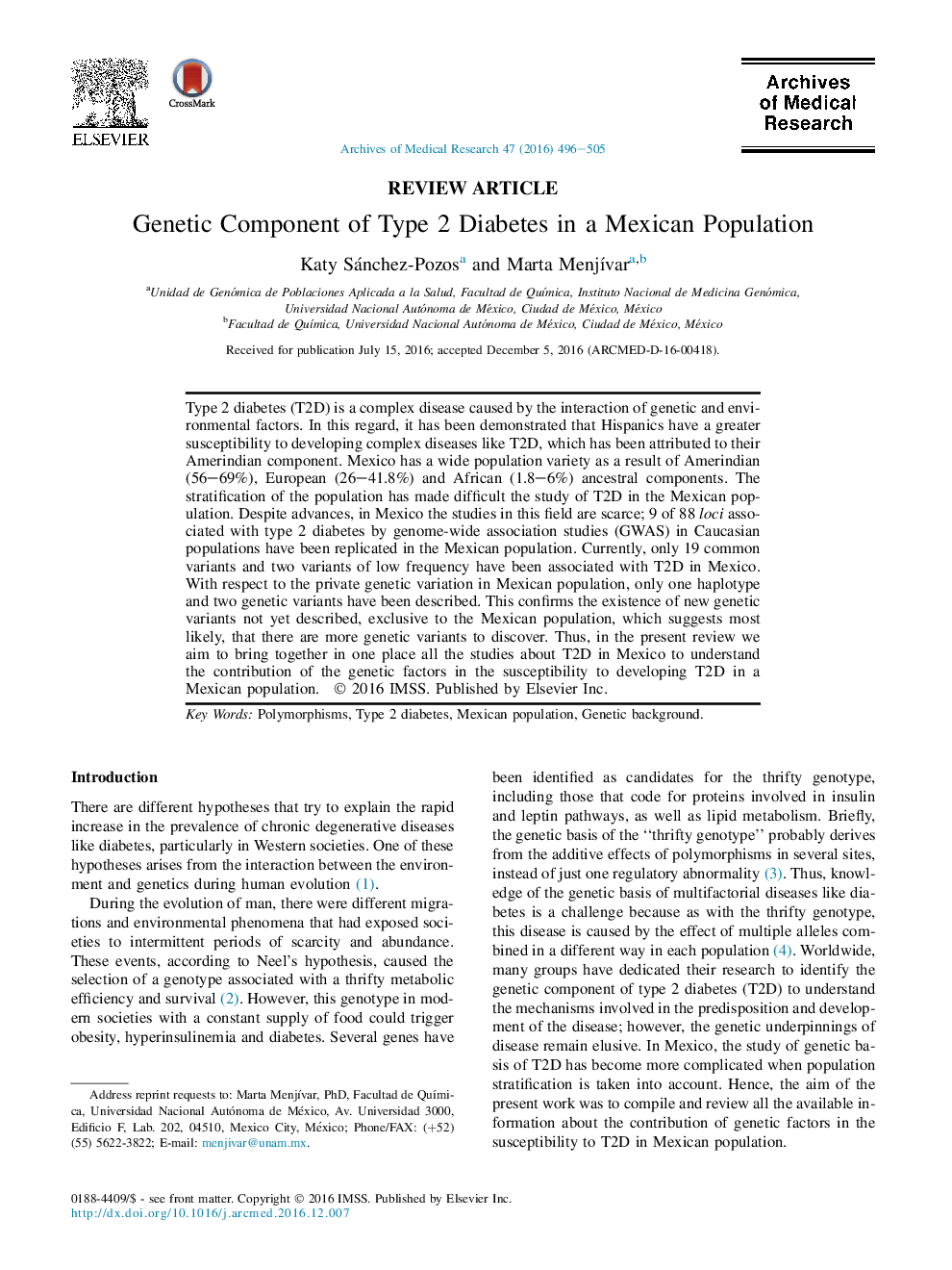| Article ID | Journal | Published Year | Pages | File Type |
|---|---|---|---|---|
| 5677239 | Archives of Medical Research | 2016 | 10 Pages |
Abstract
Type 2 diabetes (T2D) is a complex disease caused by the interaction of genetic and environmental factors. In this regard, it has been demonstrated that Hispanics have a greater susceptibility to developing complex diseases like T2D, which has been attributed to their Amerindian component. Mexico has a wide population variety as a result of Amerindian (56-69%), European (26-41.8%) and African (1.8-6%) ancestral components. The stratification of the population has made difficult the study of T2D in the Mexican population. Despite advances, in Mexico the studies in this field are scarce; 9 of 88 loci associated with type 2 diabetes by genome-wide association studies (GWAS) in Caucasian populations have been replicated in the Mexican population. Currently, only 19 common variants and two variants of low frequency have been associated with T2D in Mexico. With respect to the private genetic variation in Mexican population, only one haplotype and two genetic variants have been described. This confirms the existence of new genetic variants not yet described, exclusive to the Mexican population, which suggests most likely, that there are more genetic variants to discover. Thus, in the present review we aim to bring together in one place all the studies about T2D in Mexico to understand the contribution of the genetic factors in the susceptibility to developing T2D in a Mexican population.
Related Topics
Health Sciences
Medicine and Dentistry
Medicine and Dentistry (General)
Authors
Katy Sánchez-Pozos, Marta MenjÃvar,
